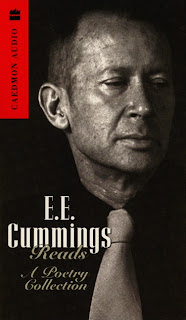exerpted from the liner notes to Mood Swing by Joshua Redman.
 "According to popular notion, jazz is something which you research and study, inspect and dissect, scrutinize and analyze. Jazz twists your brain like an algebraic equation, but leaves your body lifeless and limp. In the eyes of the general public, jazz appears as an elite art form, reserved for a select group of sophisticated (and rather eccentric)intelligentsia who rendezvous in secret, underground haunts (or accessable ivory towers) to play obsolete records, debate absurd theories, smoke pipes, and read liner notes. Most people assume that the appreciation of jazz is a long, arduous, and painfully serious cerebral undertaking. Jazz might be good for you, but it just isn't any fun.
"According to popular notion, jazz is something which you research and study, inspect and dissect, scrutinize and analyze. Jazz twists your brain like an algebraic equation, but leaves your body lifeless and limp. In the eyes of the general public, jazz appears as an elite art form, reserved for a select group of sophisticated (and rather eccentric)intelligentsia who rendezvous in secret, underground haunts (or accessable ivory towers) to play obsolete records, debate absurd theories, smoke pipes, and read liner notes. Most people assume that the appreciation of jazz is a long, arduous, and painfully serious cerebral undertaking. Jazz might be good for you, but it just isn't any fun.This image is simple, powerful, and dangerously appealing. But it is also egregiously false.
Jazz is music. And great jazz, like all great music, attains its value not through intellectual complexity but through emotional expressivity. True, jazz is a particularly intricate, refined, and rigorous art form. Jazz musicians must amass a vast body of idiomatic knowledge and cultivate an acute artistic imagination if they wish to become accomplished, creative improvisers. Moreover, a familiarity with jazz history and theory will undoubtedly enhance a listener's appreciation of the actual aesthetics. Yes, jazz is intelligent music. Nevertheless, extensive as they might seem, the intellectual aspects of jazz are ultimately only means to its emotional ends. Technique, theory, and analysis are not, and should never be considered, ends in themselves.
Jazz is not about flat fives or sharp nines, or metric subdivisions, or substitute chord changes. Jazz is about feeling, communication, honesty, and soul. Jazz is not supposed to boggle the mind. Jazz is meant to enrich the spirit. Jazz can create jubilance. Jazz can induce melancholy. Jazz can energize. Jazz can soothe. Jazz can make you shake your head, clap your hands, and stomp your feet. Jazz can render you spellbound and hypnotized. Jazz can be soft or hard, heavy or light, cool or hot, bright or dark. Jazz is for your heart”.
-Joshua Redman



